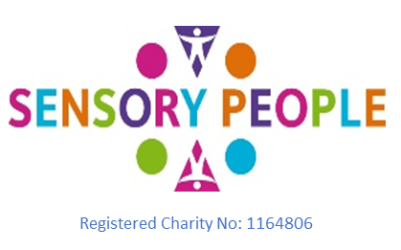a. Too Loud, Too Bright, Too Fast, Too Tight: What to Do If You Are Sensory Defensive in an Overstimulating World Paperback – 2 Dec. 2003 by Sharon Heller
With empathy, compassion, and practical tools, a developmental psychologist and sufferer of Sensory Defensive Disorder (SD) sheds light on a little known but common affliction in which sufferers react to harmless stimuli as irritating, distracting, or dangerous
We all know what it feels like to be irritated by loud music, accosted by lights that are too bright, or overwhelmed by a world that moves too quickly. But millions of people suffer from Sensory Defensive Disorder (SD), a common affliction in which people react to harmless stimuli not just as a distracting hindrance, but a potentially dangerous threat. Sharon Heller, Ph.D. is not only a trained psychologist, she is sensory defensive herself. Bringing both personal and professional perspectives, Dr. Heller is the ideal person to tell the world about this problem that will only increase as technology and processed environments take over our lives. In addition to heightening public awareness of this prevalent issue, Dr. Heller provides tools and therapies for alleviating and, in some cases, even eliminating defensiveness altogether.
b. Sensory overload
Sensory overload or sensory hyper-reactivity is something that many people with sensory integration difficulties, sometimes also called sensory processing disorder, struggle with, often on a daily basis. These short clips, including 2 for the festive season, provide us with an opportunity to understand how it feels and learn more about what can make daily life easier to manage.
c. Interoception and anxiety in autistic adults
Video from Sarah Garfinkel, professor of Clinical and Affective Neuroscience at the Brighton and Sussex Medical School, University of Sussex.
Interoception refers to the process by which the nervous system senses, interprets and integrates signals originating from within the body (such as heartbeat, hunger signals), providing a moment-by-moment mapping of the body’s internal landscape across conscious and unconscious levels.
Research has shown that the more an individual is able to accurately report interoceptive signals (such as heartbeat and awareness of feeling hungry or the need to empty their bladder), the more able they are to regulate their emotions. Those with less accurate reporting of internal sensations are more likely to have higher levels of anxiety.
In the light of this, Sarah and her team carried out trials involving training non autistic and autistic adults to improve their accuracy in identifying changes in heartbeat. They found that following this training the individuals had more awareness of their interoceptive signals and consequently their anxiety levels reduced.
c. People on the Autism Spectrum Describe What a Meltdown Feels Like
d. 15 Minute Deep Breathing Exercise
Deep Breathing exercises help reduce anxiety, stress, fatigue, restlessness, difficulty sleeping and physical discomfort.
e. How Christmas can be overwhelming
https://www.bbc.co.uk/news/av/stories-42411704
Sensory overload: when Christmas is just too much
Like minds: When trauma can make the festive season overwhelming
